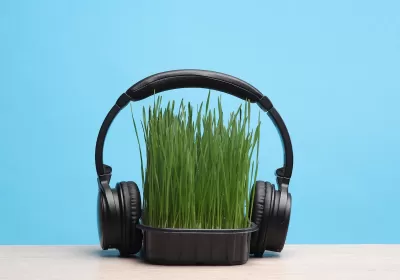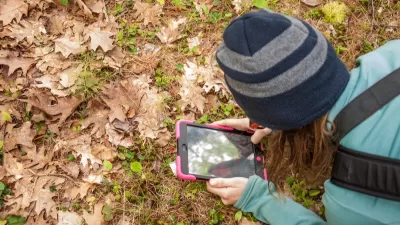This innovative approach leverages the power of sound to stimulate beneficial soil microbes, offering a novel and eco-friendly tool for ecosystem restoration and biodiversity enhancement.

As the need to restore ecosystems grows, scientists are exploring innovative methods beyond traditional approaches like tree planting and pollution reduction. A surprising new tool in this effort is sound. Ecologists have discovered that recreating natural soundscapes can help revive degraded environments, as demonstrated in marine ecosystems where playing the sounds of healthy coral reefs and oyster beds has encouraged the recovery of marine life. This concept is now being tested in plant microbiology, with promising results showing that sound can stimulate the growth of beneficial soil microbes.
Recent research conducted by ecologists at Flinders University in Australia has shown that high-frequency sound can significantly increase the growth and reproduction of fungi that promote plant health. In controlled experiments, fungi exposed to white noise grew seven times faster and produced four times more spores compared to those without sound treatment. These beneficial microbes are essential for ecosystem recovery, as they support plant nutrient uptake and disease resistance. Researchers believe that sound stimulates microbial receptors, triggering growth and other positive responses.
The success of sound-based restoration in both marine and terrestrial ecosystems opens up new possibilities for large-scale ecological recovery projects. Researchers envision creating a "biodiversity jukebox" tailored to each ecosystem, using soundscapes to enhance the health and resilience of environments from forests to wetlands. This method could also play a role in regenerative agriculture by working with natural processes to improve soil health and sustainability.
As this research advances, scientists are also exploring the impact of noise pollution on ecosystems, investigating how industrial and traffic sounds may harm wildlife and plant life. With the future of restoration potentially including both sound stimulation and noise reduction, this low-impact, cost-effective approach has great potential to aid in healing the planet's degraded landscapes.
FULL STORY: The biodiversity jukebox: how sound can boost beneficial soil microbes to heal nature

Alabama: Trump Terminates Settlements for Black Communities Harmed By Raw Sewage
Trump deemed the landmark civil rights agreement “illegal DEI and environmental justice policy.”

Study: Maui’s Plan to Convert Vacation Rentals to Long-Term Housing Could Cause Nearly $1 Billion Economic Loss
The plan would reduce visitor accommodation by 25% resulting in 1,900 jobs lost.

Why Should We Subsidize Public Transportation?
Many public transit agencies face financial stress due to rising costs, declining fare revenue, and declining subsidies. Transit advocates must provide a strong business case for increasing public transit funding.

Paris Bike Boom Leads to Steep Drop in Air Pollution
The French city’s air quality has improved dramatically in the past 20 years, coinciding with a growth in cycling.

Why Housing Costs More to Build in California Than in Texas
Hard costs like labor and materials combined with ‘soft’ costs such as permitting make building in the San Francisco Bay Area almost three times as costly as in Texas cities.

San Diego County Sees a Rise in Urban Coyotes
San Diego County experiences a rise in urban coyotes, as sightings become prevalent throughout its urban neighbourhoods and surrounding areas.
Urban Design for Planners 1: Software Tools
This six-course series explores essential urban design concepts using open source software and equips planners with the tools they need to participate fully in the urban design process.
Planning for Universal Design
Learn the tools for implementing Universal Design in planning regulations.
Smith Gee Studio
Alamo Area Metropolitan Planning Organization
City of Santa Clarita
Institute for Housing and Urban Development Studies (IHS)
City of Grandview
Harvard GSD Executive Education
Toledo-Lucas County Plan Commissions
Salt Lake City
NYU Wagner Graduate School of Public Service





























